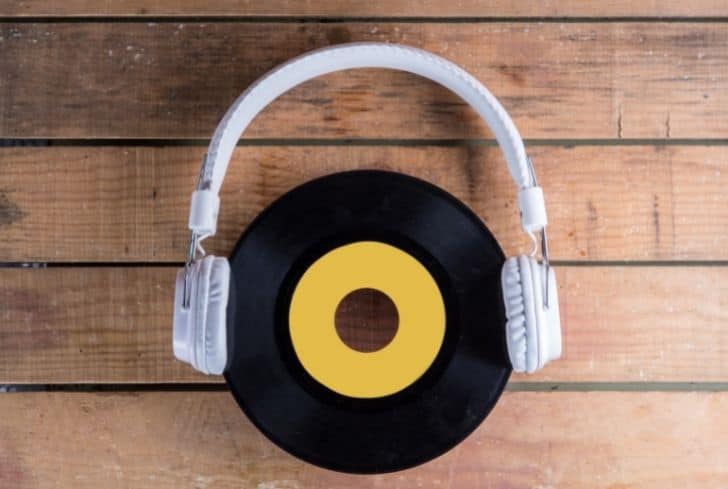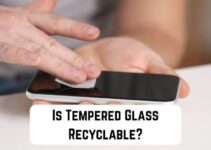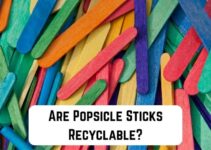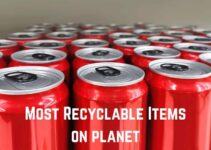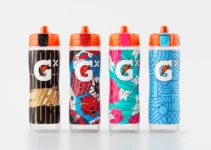When you think of versatility, an object that should come to your mind is Polyvinyl Chloride (commonly referred to as PVC or vinyl). This is the most versatile plastic globally, and it is used to make almost everything, ranging from automobile body parts to food wraps.
Vinyl has now become the second-largest selling plastic in the world, and the industry has over a hundred thousand employees in the United States alone. Think of how many more employees who work in the industry around the world.
The low cost, performance, and versatility have made vinyl the choice material for different industries. Statistics show that over fourteen billion pounds of vinyl are produced in North America annually. With the high demand for vinyl around the world and the plastic being produced in large quantities, what is the assurance that they are environmentally friendly?
Are you one of the few who is interested in keeping our environment safe? Or, you are curious and want to learn how to recycle old items you possess? This blog post will provide you with interesting answers to this question and many more. Why not take a seat, relax, and enjoy while you read this post!
Can Vinyl Be Recycled?
Over time PVC or vinyl has become an important element in almost every industry; it is used to produce a wide variety of things. Industries like communications, automotive, health care, textiles, retailing, construction, and retailing all used vinyl as an important element in production.
Vinyl is manufactured from two compounds, forty-three percent ethylene (gotten from crude oil) and fifty-seven percent chlorine (found in natural salt). The compound produced is ethylene dichloride, and it is converted at a very high temperature to vinyl chloride monomer gas.
As a person concerned with the state of the environment and how to make it better and more habitable for us, you would have thought about recycling vinyl, if it is possible to recycle it, and how to recycle it.
Yes, vinyl can be recycled. However, vinyl is one of the plastics that are very difficult to recycle. Vinyl can be melted down and used for other purposes. The interesting thing about vinyl is that it can be recycled up to 8 times. This is possible because recycling vinyl does not have any effect on the chain length of its molecules.
Since you know that vinyl can be recycled, the next question in your mind will be how do we recycle vinyl. Vinyl is a non-biodegradable product, so it does not decompose with time. You cannot deposit vinyl at the municipal recycling centers because they are non-biodegradable; neither can you put it in the recycling bin.
Nevertheless, there are special recycling centers that accept non-biodegradable items, and they have their process of recycling them. You would have to check the internet to find the one closest to you.
Can Vinyl Records Be Recycled?
We are aware that vinyl is not easily recyclable, but are vinyl records also difficult to recycle? This is a question you will have if you have people who used vinyl records a lot and do not need them now. So, let us find out now.
The older generation (the Baby Boomers and maybe the Generation X) all grew up to use vinyl records to listen to music. And some of them claim that it has the best audio quality, which is disputable, but that is a topic for another day.
With the invention of cassette tapes to Compact Discs (CDs), and now with the introduction of digital music platforms, vinyl records are now obsolete. It has left many people with a basement filled with piles of old vinyl records. The majority of these people have been looking for ways to dispose of them and free up their basements.
The sad news is that there is no good way to recycle vinyl records for now; maybe later, there would be innovative ideas for recycling vinyl records. Vinyl records are difficult to recycle because they contain heavy metals like nickel and silver. These metals release poisonous gas when melted, and only a few recyclers are willing to take their chance.
Recycling companies that deal in vinyl focus on things like old construction materials, gift cards, and banners that can be disintegrated and used to make new materials. Only a few are willing to recycle vinyl records.
The only way to recycle old vinyl records is to reuse them or have them crafted into new products. To discover people, stores, or organizations interested in old vinyl records, conduct a little internet search, and you will find a couple of them around you.
Only one part of a vinyl record is recyclable, and that is the sleeve or the holder. It is recyclable because it is made of lightweight cardboard.
Is Vinyl Siding Recyclable?
Vinyl siding is a product that many house owners prefer to use in their homes instead of wood. Vinyl sliding is popularly used because it does not rot like wood; it is easy to clean, easy to install, inexpensive, and lasts for a long time.
Vinyl siding is probably the only PVC product that is environmentally friendly, and there is no manufacturing waste during the production of vinyl siding. So, recycling it is easier than other vinyl products. However, most recycling centers are not willing to recycle any PVC products.
If you are lucky, you will find a recycling facility that recycles PVC products, then all you need to do is gather all the vinyl siding you want to dispose of and drop it off at the recycling center.
According to the Vinyl Institute, about sixty to seventy percent of all vinyl products are manufactured from recycled vinyl. So, you see that although recycling vinyl products is difficult, it is still a process that needs to be done.
Is Vinyl Biodegradable?
As we stated earlier, vinyl is made from ethylene (from crude oil) and chlorine (found in natural salt). Chlorine is the major element used in the production of vinyl, and it is fifty-seven percent of the base component, while ethylene is forty-three percent.
During vinyl production, chlorine is chemically locked into it more tightly than it was in salt. As a result, when vinyl is dumped in a landfill, chlorine gas is not released.
The question now is, is vinyl biodegradable? No, vinyl is not biodegradable. When you dispose of vinyl in the waste facility, it does not release contaminants into the environment because it is non-corroding. It just fills up space.
Although vinyl is not biodegradable, it is also not harmful to the environment. So, if you have some vinyl products you need to get rid of, locate a recycling center that accepts vinyl instead of dumping it in a landfill as it just takes up precious space.
6 Surprising Ways to Dispose of Old Vinyl Records
There is a fact that is certain about our world, evolution. Nobody believed that a time would come when we would listen to music digitally in the era of vinyl records. Well, cassette tapes and compact discs would also be strange to them then. But here we are, always evolving and discovering better ways to do things.
Are you a Millennial or Generation Z who is stuck with a basement filled with old vinyl records your parents, grandparents, and even great-grandparents used to listen to music in their days? Are you looking for ways to dispose of them without causing harm to the environment?
That’s why we have come up with this blog post to provide you with information on how to dispose of old vinyl records properly. You can use old vinyl records for different things instead of dumping them in the waste facility. Relax and have fun trying out these mind-blowing ideas.
1. Sell Your Old Vinyl Records
This is a great way to dispose of your old vinyl records. Some people are interested in purchasing old records. To them, old vinyl records are precious, and they are willing to pay any amount to have them. If you are lucky enough to have rare albums, collectors will pay you more for them.
You can also sell old vinyl records online through stores like Hard To Find Records. It is very easy to sell them, and you need to follow three simple steps.
- Identify the barcode or catalog number. If you cannot find it, identify the artist and title box.
- Select the items you want to sell using the “find your vinyl for CDs to sell” box.
- Confirm your details and send your item.
Easy, follow these three steps to sell your old vinyl records on the Hard To Find Records store. You can also sell them on eBay, and you would find people willing to purchase them.
2. Use Old Vinyl Records For Art
There are different innovative ideas you can use old vinyl records for. One of such art is to create a hanging mobile to show off your favorite artist’s record. To do that you would need to get a hook, a mobile, and some vinyl records.
You need to drill a hole in the ceiling first, insert the hook into the hole, assemble the mobile, hang the mobile from the hook, and put your records on the strings of the mobile.
3. Use Old Vinyl Records To Make Drink Coasters
To create this, you need scrap lumber, a hole saw, and the vinyl records you intend to reuse as drink coasters. First, you need to drill a hole into the scrap lumber, about half an inch deep. Then place the record with the spindle hole, ensure it is aligned with the lumber hole.
Using the hole saw, cut through the record. You should be done within seconds. Use Mod Podge to complete the finishing of the drink coaster. You have yourself a homemade drink coaster.
4. Donate Old Vinyl Records
You can check up a local library and see if they accept vinyl records. If they do, you can donate your old vinyl records to them. Some libraries have vinyl records as artifacts for people to check out.
You might be lucky to possess old records they do not have and have been trying to get; who knows. You can also donate them to local charities or the Salvation Army if they accept donations of old vinyl records.
5. Give Family And Friends
You can ask any of your family members or friends if they are interested in any of your old vinyl records. Older family members who still own turntables would gladly accept the vinyl records.
6. Create a Fun Side Table
To create a fun side table, you need a vinyl record, a planter stand, and a glue gun. The first thing to do is to clean the record with a damp paper towel. Then heat the glue gun, apply an even line of hot glue around the top edge of the planter stand where you will put the record. Place the record carefully on top of the planter while the glue is still hot. Let the glue cool and harden. you have yourself a fun side table.
Conclusion
Recycling is one of the best ways we can save our environment. With all the industrial waste, pollution, and other harmful substances created due to human activities, it is the least we can do to save our environment.
If you come across this blog post, it means you are ready to dispose of a couple of vinyl products you have, either vinyl records or vinyl siding. We have listed some recycling ideas you will find useful. These ideas are cost-effective and a good way to protect our environment.
References:
https://www.azom.com/article.aspx?ArticleID=987
https://letstalkvinyl.com/when-you-think-environmentally-friendly-think-vinyl/
https://www.hunker.com/13419985/how-to-dispose-of-old-vinyl-records
